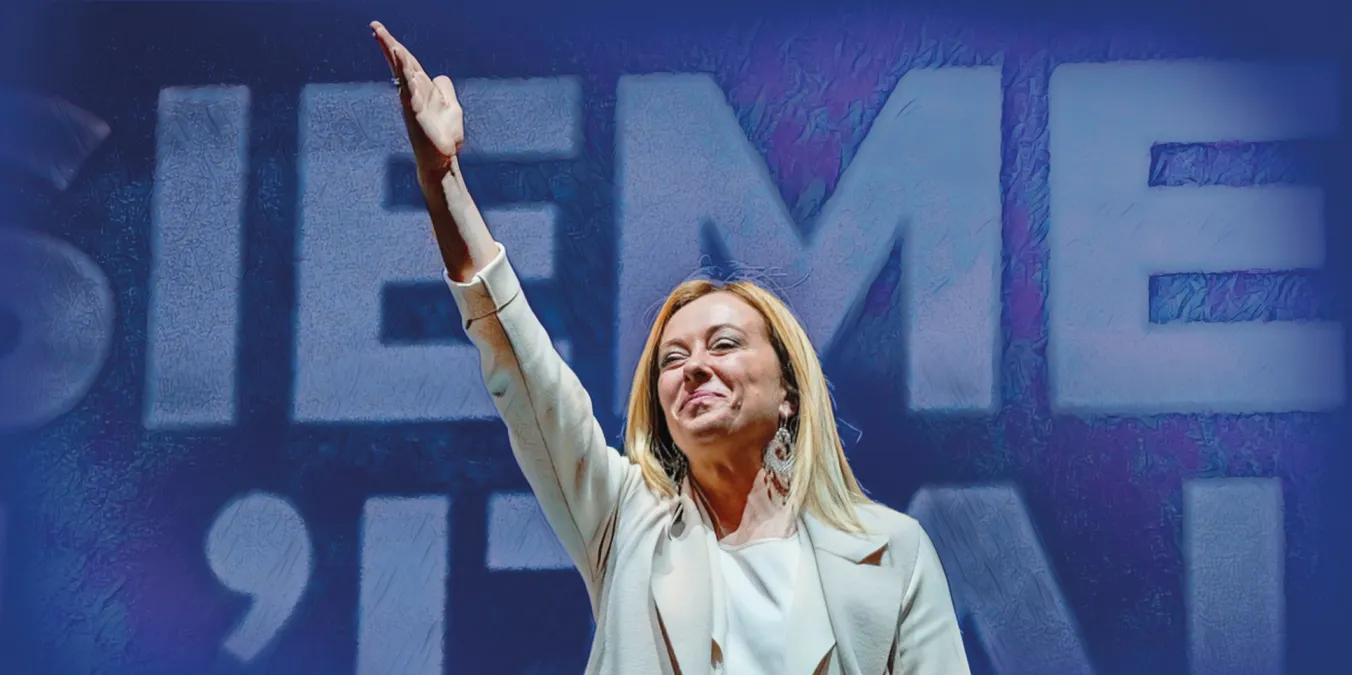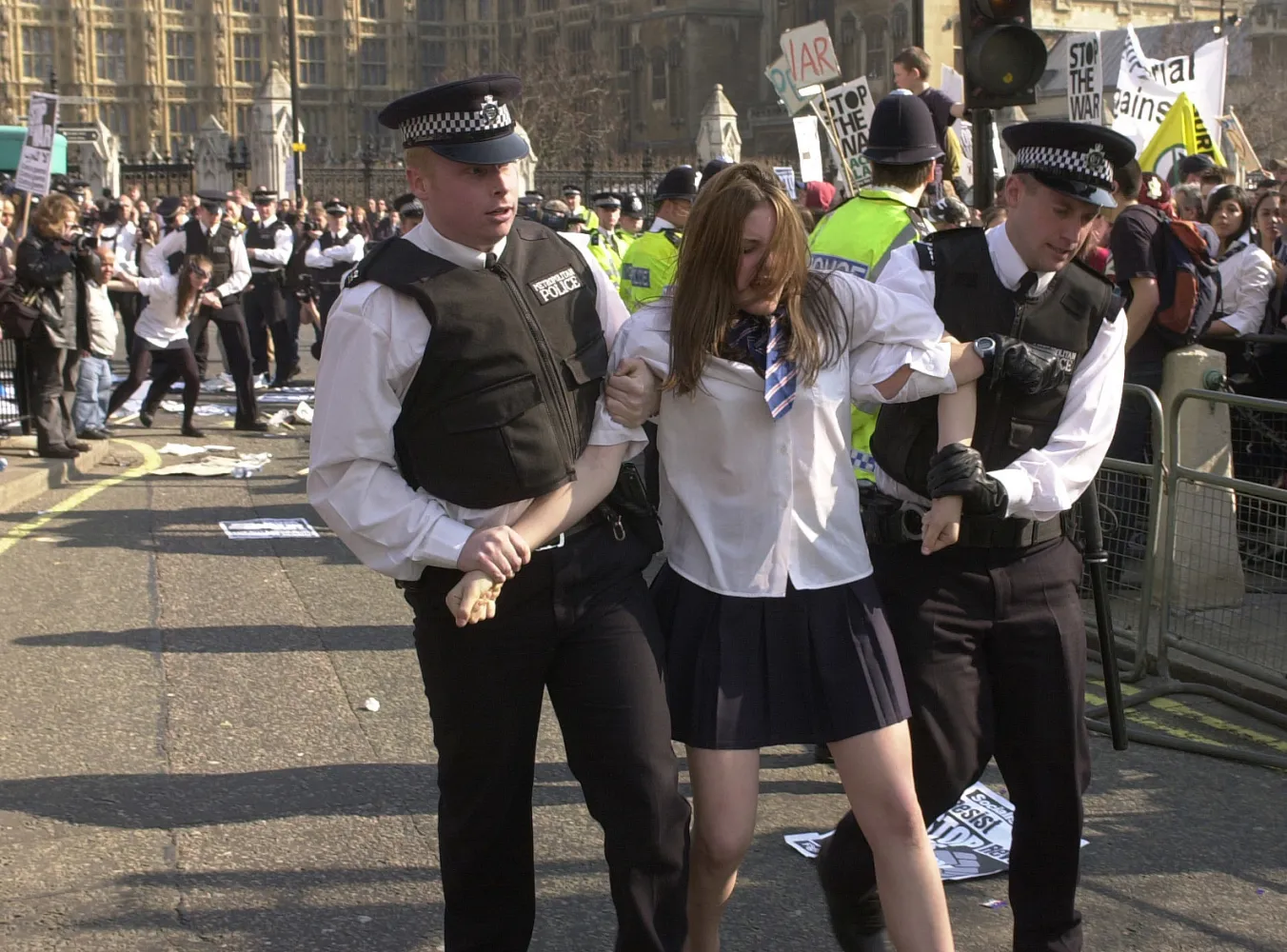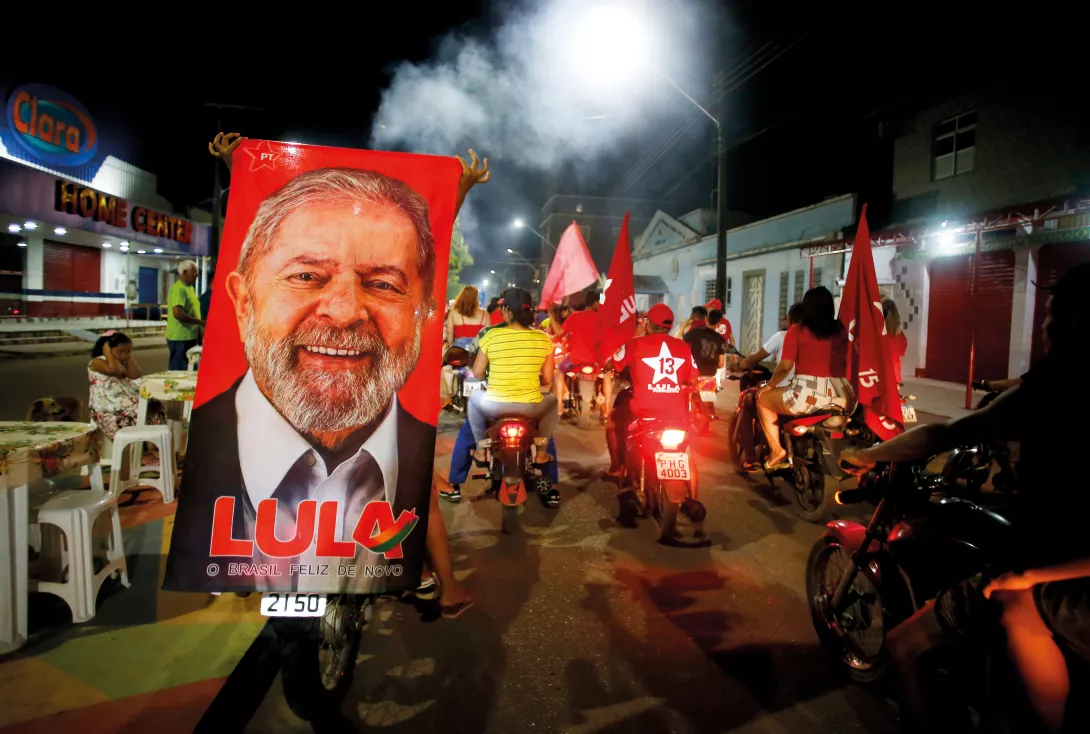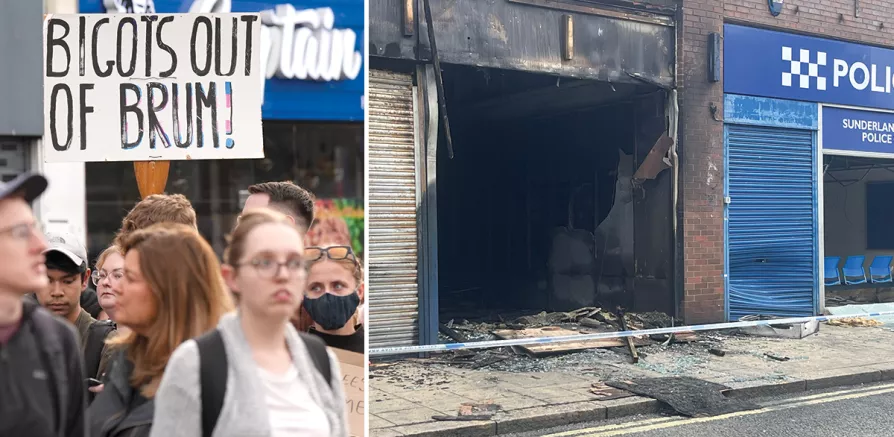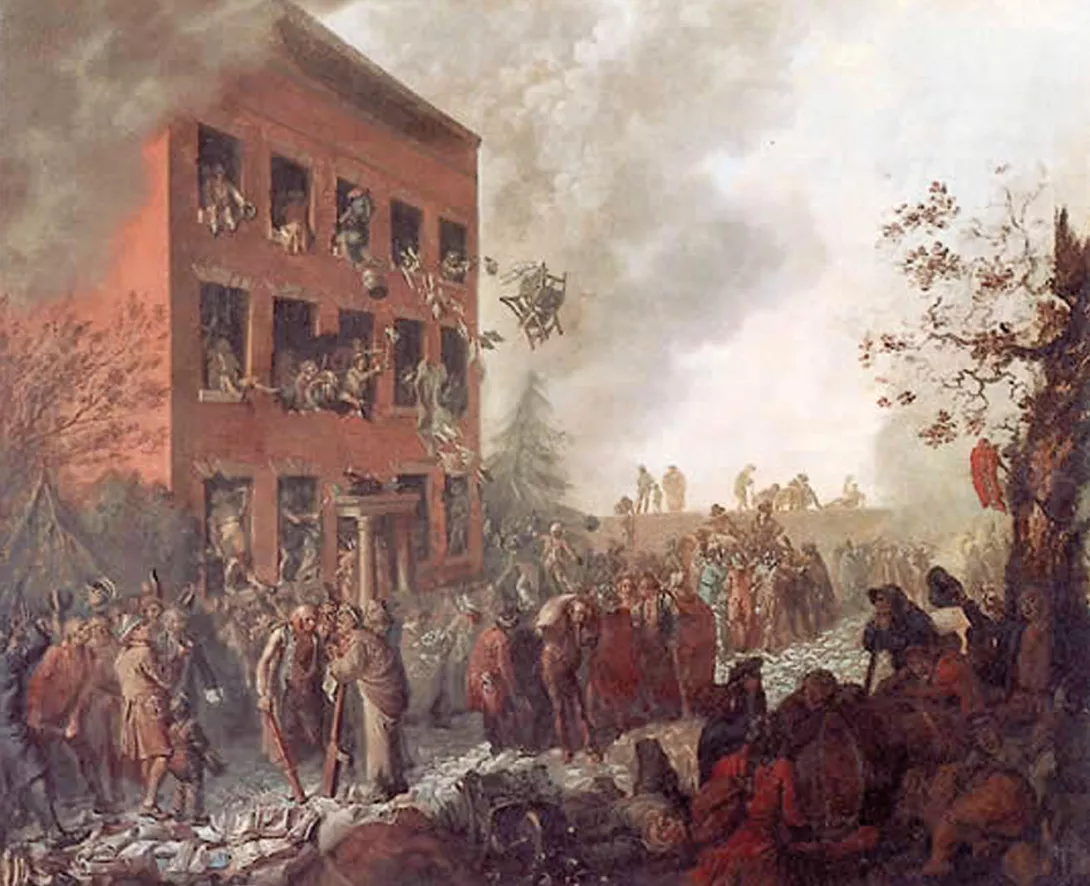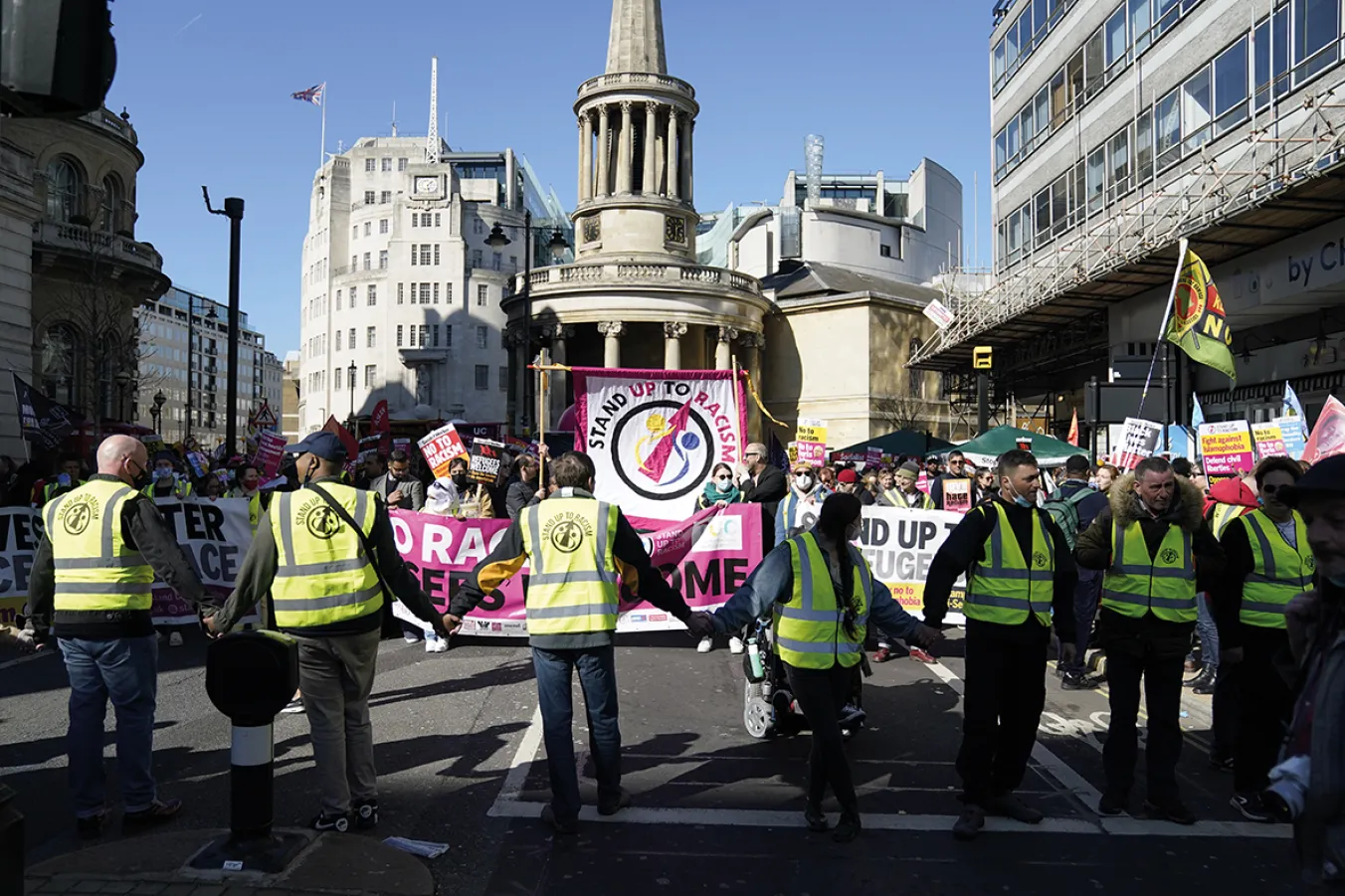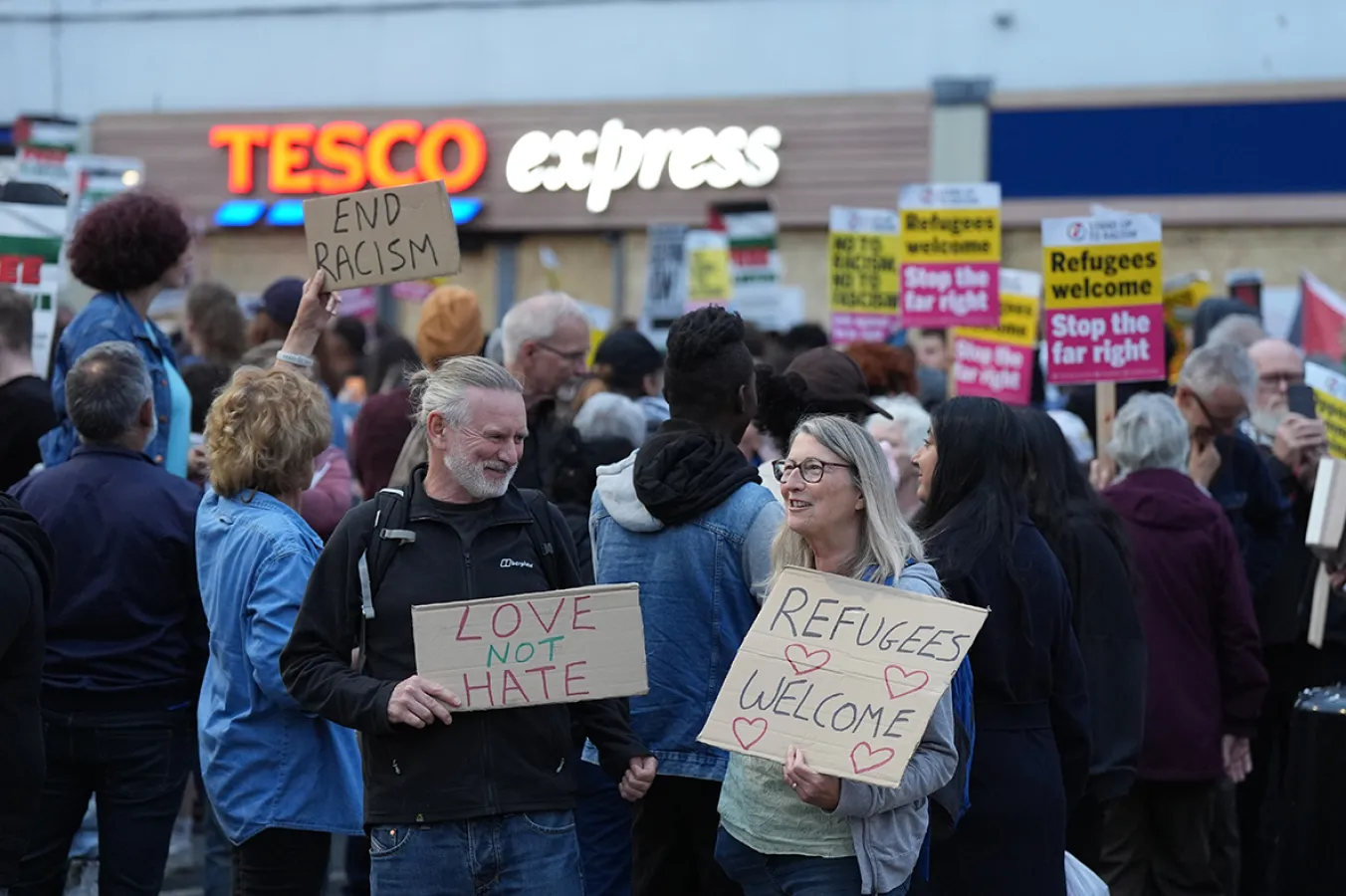
ANTI-RACISTS and anti-fascists have scored a notable victory. They stopped the orgy of rioting that we have seen on our streets, at least for now. Their actions were a model of unity, mass mobilisation and peaceful determination.
Unfortunately, this excellent model will need to be deployed time and again in the next period. There are good reasons to expect that this far-right menace is not going away, even if it is temporarily hiding.
Muslim-haters and organised fascists had been left free to terrorise whole towns and communities. It is the most broad-based and geographically dispersed violence of my lifetime.
A reactive policy has been proven to be ineffective. Inevitably, serious criminality will be met with tough sentences. But it is far better to prevent the rioting and intimidation from being organised in the first place.
There are good reasons to believe this was a battle won, but we are in for a prolonged struggle.
The far right is borne aloft by a torrent of filth that has polluted our political life for decades, from Establishment media and politicians. My colleague Zarah Sultana was pilloried for pointing out this truth. Leading media retailers of hate later claimed they were on the side of the anti-racists’ victory. This fools no-one.
Politicians have chased cheap and nasty votes by retailing this filth while carrying out a policy of driving all wages lower and implying it is the fault of migration.
When successive governments froze or cut real pay in the public sector this had nothing to do with immigration. It was the policy of politicians who also decried immigration numbers. The same reactionary duplicity has taken place about all our public services; cuts and underfunding accompanied by blame-shifting and divide-and-rule politics. Culture wars replaced any semblance of policy.
This reached a low point prior to the general election when then-home secretary Suella Braverman falsely claimed that key London monuments were under attack from the very large and peaceful protestors calling for a ceasefire in Gaza. In effect, she called up a fascist demo in support, which predictably led to a large-scale riot.
We must examine how we got here and chart a completely different course. The most recent events belong as a link in a long chain of events. These include Oswald Moseley marching against the Jewish community in the 1930s, the perennial attacks on Irish people, the “Notting Hill race riots” which were fascist attempts to drive out the Windrush generation and later the NF and the BNP.
These are long-standing cancers in British society, and almost none of them are challenged by the political mainstream.
But there is now something new, arising from the general election which has largely been neglected. The Tory vote was crushed, which handed Labour a parliamentary landslide — but this was far from a popular surge. The dazzling number of new Labour MPs should not obscure the fact that we lost more than half a million votes between the 2019 and 2024 elections.
By contrast, Reform UK got 4.1 million votes, more than the Lib Dems. This was an increase of 3.5 million over its predecessor the Brexit Party in 2019, when it effectively stood aside in favour of Boris Johnson.
Reform UK’s political leadership is also more embedded in British politics than its predecessors. When Enoch Powell made his “rivers of blood” speech, he was cast out from the Tories and found a home as an Ulster Unionist, which was then the fringes of politics. Now, Nigel Farage is Question Time’s most frequent guest and the tabloids write headlines he could have written.
The far right in British politics has been mainstreamed. It is not suddenly going to disappear.
Worse, there is now a close association between the far-right and fascist agendas. When Powell made his speech it was unspecific —half threat, half forecast. Now Braverman whistles them up for a riot and Farage tours the streets pointing out the locations of asylum-seeker hostels.
Inevitably, the far right feels emboldened and almost immediately took to the streets to riot after the election of a Labour government. This is a new situation, where the political weight of the far right is much greater than before. It is also in line with developments across Europe.
Tackling them requires a twin-track strategy. The first element of this strategy must be a defence of our communities before they come under attack.
It is outrageous and unacceptable for young Muslim girls to be cowering in their own bedrooms while an Islamophobic mob tries to break into their homes.
It is unspeakable that asylum-seekers, who have already experienced great trauma in being forced from their homes to come here should be at risk of being burnt alive in a hostel.
It is simply outrageous that a young black man is hounded and beaten by a gang of masked racist thugs, and then he is the one detained by police. I have witnessed all of these incidents on TV in the last few days.
The second part of the strategy must be to cut off this racist monster at the head. That requires a political strategy to oppose and defeat the peddlers of racist, Islamophobic and anti-migrant hate.
They do not have “legitimate concerns” about housing, lack of local facilities or overstretched public services as their powerful apologists claim. They have burnt down buildings, including a library and attacked firefighters, ambulances and police. Their “complaint” is that their targets, not the government or their employers, are to blame for society’s ills.
Leading Tories like Braverman, Priti Patel, Kemi Badenoch, Boris Johnson and others have gone notably quiet. Their silence may be purely tactical, unlike Musk or Farage. But the political leadership of this far-right movement must be tackled, and all those who echo or apologise for them.
The role of the labour movement can be decisive. While individual communities are forced to defend themselves, only the labour movement can defend society as a whole from these attacks.
The whole of the labour movement needs to unite to oppose and ultimately defeat the menace of the far right. First, this is the interests of our own colleagues, communities and comrades, because they are the targets of these attacks.
But secondly, it is in the vital interests of the labour movement itself. History shows us that there has never been a far-right or fascist movement that did not viciously attack the labour movement too.
In reality, this is their ultimate aim, to divide and rule in order to impose a huge defeat on the main organisations of the working class, their trade unions and political parties. They must be stopped.
Diane Abbott is Labour MP for Hackney North and Stoke Newington. Follow her on Twitter @HackneyAbbott.
